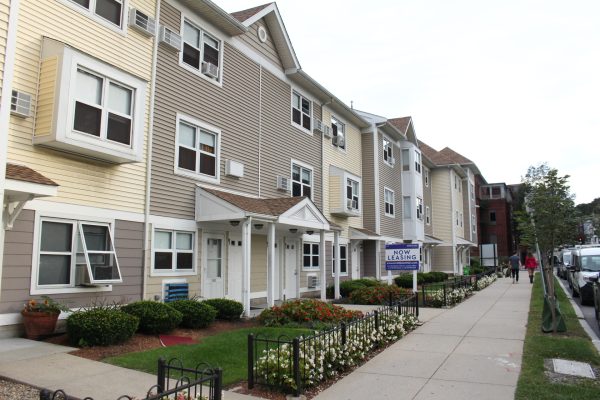Op-ed: Greek life fees exclude low-income students
October 21, 2019
College students already dish out tons of money each semester, whether for tuition, housing or books, but some choose to spend even more to participate in Greek life. But the cost of joining a Greek organization can be a burden to some, as the prices are so high they exclude lower-income students, even at Northeastern.
Greek life can be a great way for students to get involved, meet new, like-minded individuals and gain access to a vast web of networking opportunities. It promotes philanthropy, as well as brotherhood and sisterhood. Despite this, Greek life also holds a reputation around the country for being exclusive, especially with the high price that comes with admission.
Greek life fees typically range from $100 to $1000 per semester, depending on the sorority or fraternity and whether or not you’re a new member. This fee does not include the lettered gear everyone is expected to wear in order to show solidarity within the organization and at events the chapters host. At NU, students must pay a $35 recruitment fee to rush, or participate in the recruitment process, which does not guarantee a bid to a chapter.
Fortunately, Greek life at Northeastern is more affordable than joining one at a school where it is more prominent. At other schools where Greek life is the main social scene, the high price has a greater impact on lower-income students. The semester dues at Northeastern are dwarfed in comparison to colleges such as The University of Alabama. Their dues are over $7,000 if they live in their chapter house and $3,500 if they don’t. At other colleges, some Greek life fees not only include costs of living, but meal plans as well, which is why Greek life is so much more accessible to students at Northeastern.
But the recruitment process itself is exclusive and undermines the potential of a student not being able to afford to join, even at Northeastern. Semester dues are not released during the recruitment process for Greek life at NU. In fact, recruits are asked to avoid talking about money while rushing. It is only after a person receives a bid to a chapter that they find out the exact costs of joining. These high costs can come as an unwelcome surprise, causing some recruits to drop out of the rushing process.
There are also unavoidable costs besides dues that are not subsidized by your organization — and everyone is expected to pay for them. For example, each new member is assigned to a “big,” who is expected to pay for gifts for their “little.” Even returning members are subject to such costs, which are not covered by the semester dues and required in order to avoid social repercussions.
70 percent of students at the most selective colleges come from the richest 25 percent of the population. Only 5 percent of students at the most selective colleges come from the bottom quarter. Undoubtedly, these students struggle to afford the dues of admission into a Greek chapter, excluded from what some consider a key part of college life. But if only the highest earners are able to afford Greek life, their organizations will also reflect this lack of socioeconomic diversity.
Northeastern is also an outlier because its chapter fees are significantly cheaper than universities with comparable economic demographics, especially considering it is one of the least economically-diverse schools in the country. The average income of a Northeastern family is $150,900, putting 65 percent of Northeastern students in the top 20 percent, which is significantly higher than other schools with higher Greek life fees.
Long-term payment plans and scholarships are available for NU students seeking Greek life. These options are steps in the right direction of inclusivity and promoting an environment in which low-income students are able to participate in these organizations.
Sarah Olender is a second-year journalism major.


















